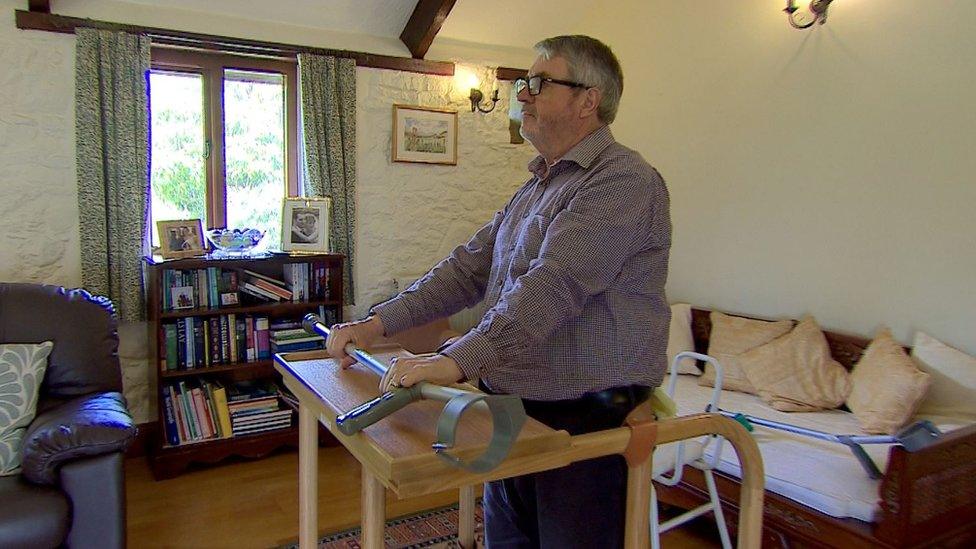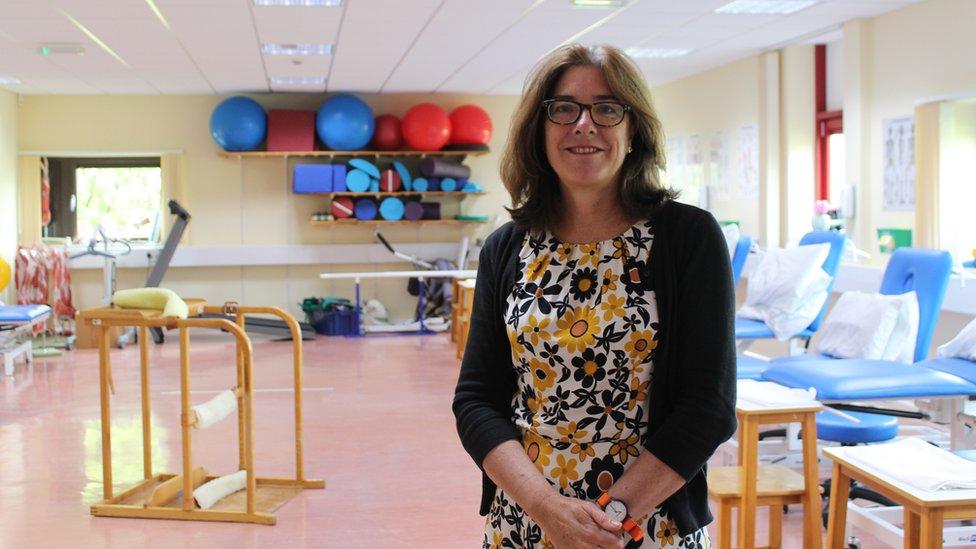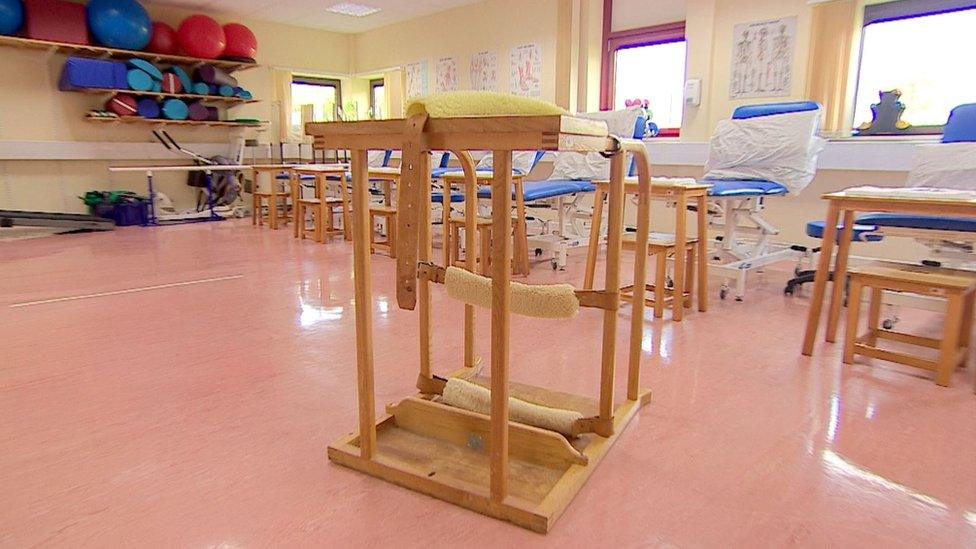Multiple sclerosis: Dad walks daughter down aisle after standing frame study
- Published

John Kendrick walking his daughter Nicky down the aisle
A father with progressive multiple sclerosis (MS) says he was able to walk his daughter down the aisle after using a simple wooden standing frame to strengthen his muscles.
John Kendrick's mobility has been deteriorating for a decade.
Desperate to fulfil his promise to daughter Nicky, he volunteered for a study looking at whether standing frames could help people with MS.
"It meant everything," he said of being able to take part in her big day.
Mr Kendrick, 67, from Sparkwell in Devon, was diagnosed with the condition, which can affect the brain and spinal cord, 14 years ago.

Mr Kendrick uses his crutch to exercise his upper body while he is in the standing frame which he uses three times a week
He now has the secondary progressive form of the disease meaning it will get worse and there is no treatment that can help him.
"You either give up or you get on with it," he said of deciding to take part in the Plymouth University-led study.
"I was putting my hand up for anything... I was determined to take my daughter down the aisle when she got married and using this gave me the strength to be able to walk down the aisle with the help of my daughter and one crutch instead of two crutches."
Mr Kendrick said without the standing frame, which he uses while watching television in his living room, he would be "really struggling" and would not have been able to complete his fatherly duties.
"This is an amazing bit of kit. It is so simple yet it is so effective," he said.
Professor Jenny Freeman, who led the study, said it was aimed at those whose mobility had been restricted to only being able to walk up to 20m with crutches or a walking frame.

"We got back wonderful stories of how they had really valued standing in the frame," Prof Freeman said.
She said the results showed there was a significant difference between people who used the standing frame and those who just had their usual care.
"It is a really simple intervention and it is not costly at all," she said, adding that it had had a "tremendous" impact on the quality of life of many of the participants.

Standing frame study

Each frame costs £550
Participants were introduced to the frames during two sessions with a physiotherapist
They were told to stand for 30 minutes, three times weekly, over 20 weeks
They were encouraged to exercise their upper body at the same time
The study found the standing programme "significantly increased" motor function in people with severe progressive MS

You may also be interested in:
Currently standing frames are only used "occasionally" in the NHS and it can be difficult to get commissioners to agree to purchase them, Prof Freeman said.
She said she hoped evidence from the study would help make the frames more readily available for MS patients.

Multiple Sclerosis (MS)
MS starts in one of two general ways - with individual relapses or with gradual progression
Just over one-in-10 people with the condition start their MS with a gradual worsening of symptoms
About half of people with relapsing remitting MS will develop secondary progressive MS within 15 to 20 years
The risk of developing progressive MS increases the longer you have the condition
Source: NHS
- Published9 May 2019

- Published21 October 2018

- Published18 March 2018